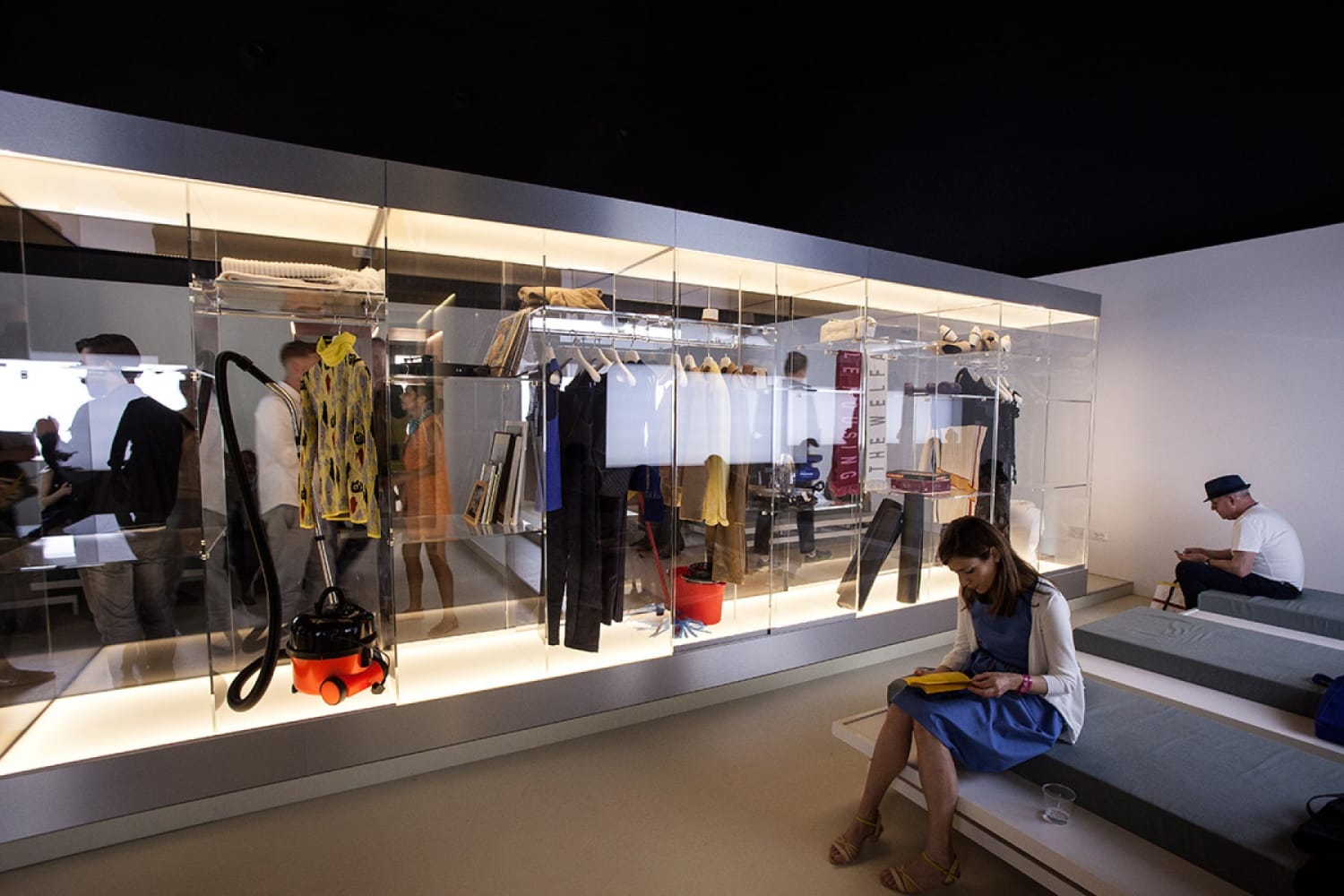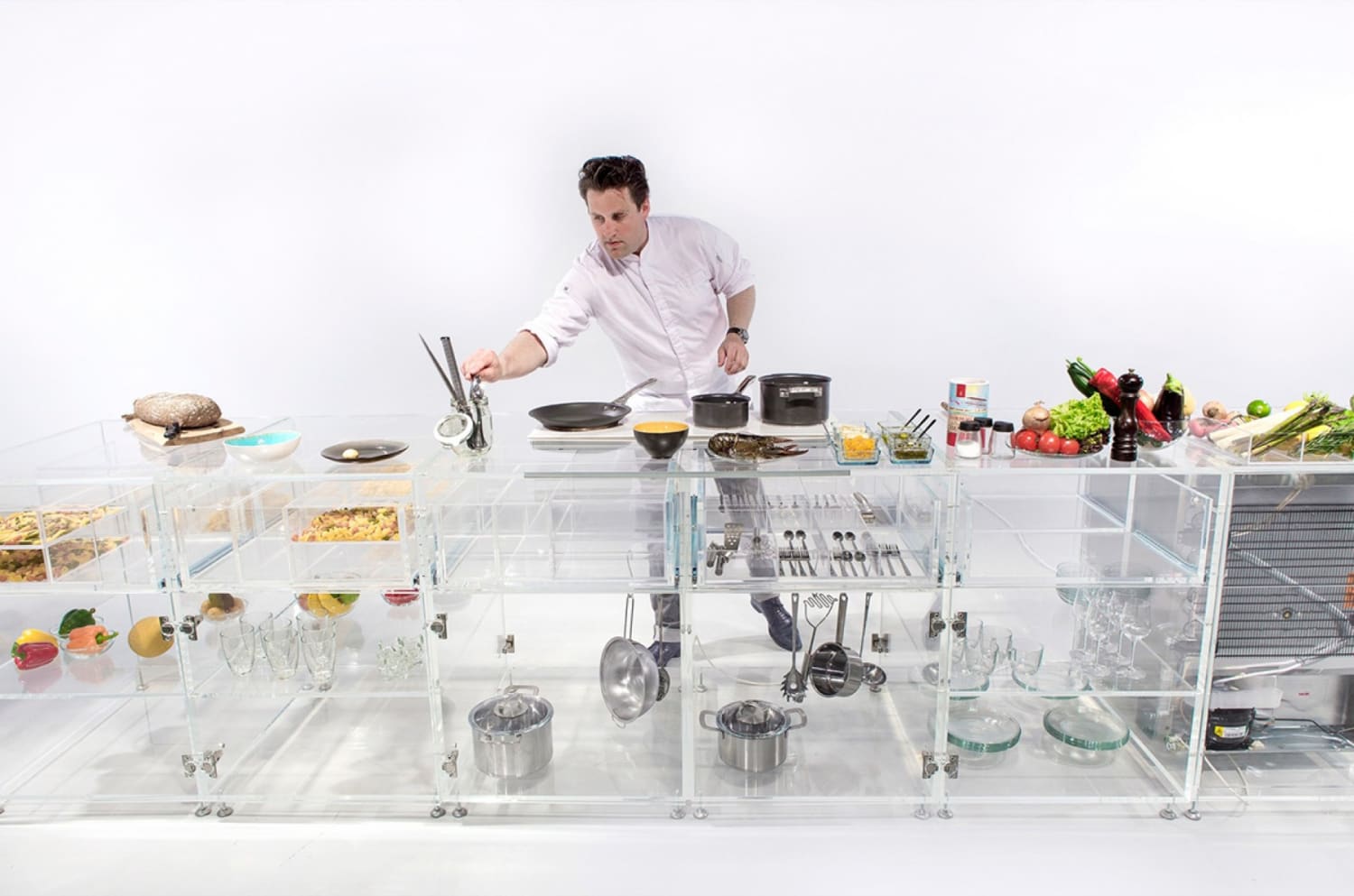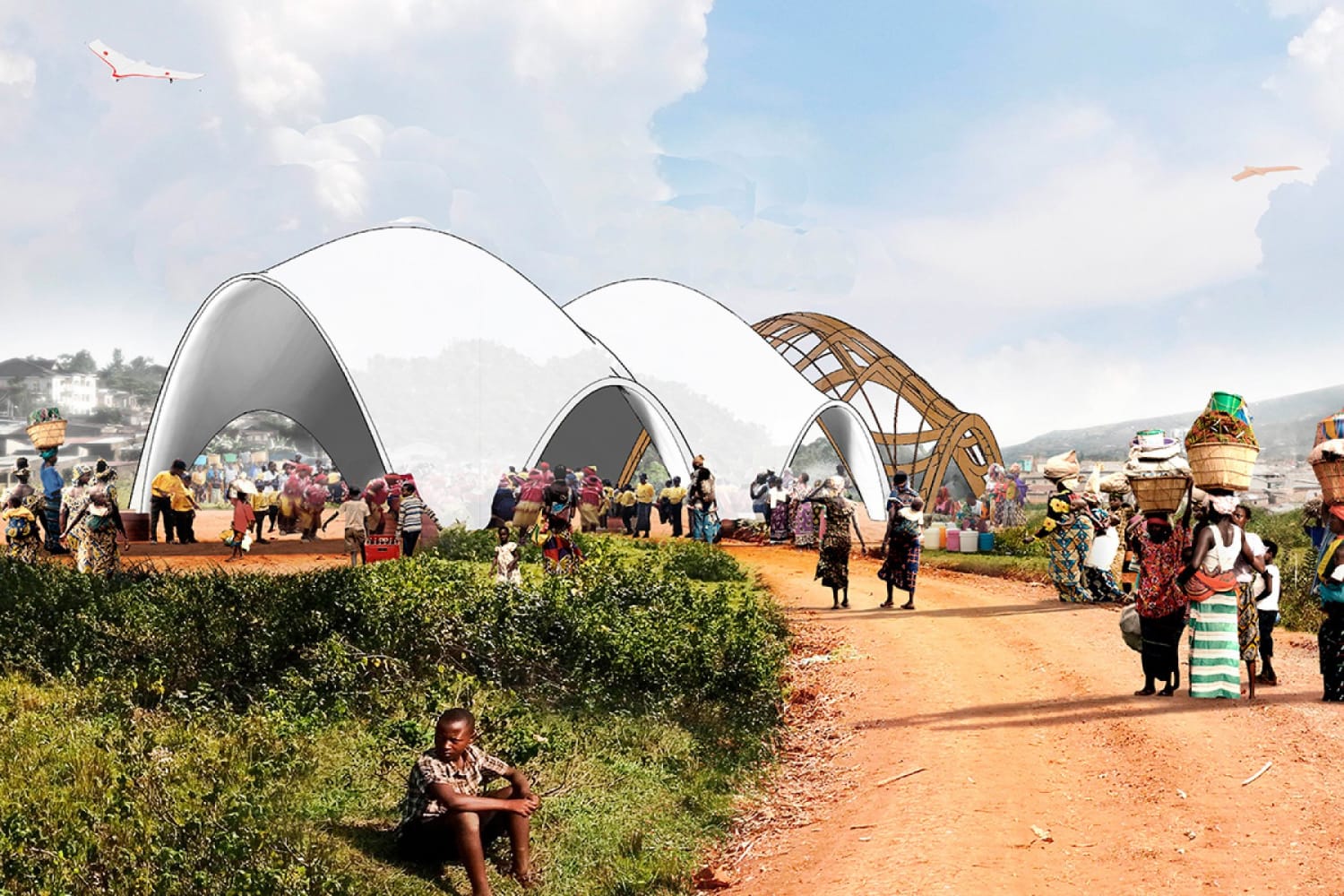This year’s Venice Architecture Biennale, open through November 2016, tackles the theme “reporting from the front”—calling on 88 international participants to interpret frontline architectural battles around the world. While some entrants responded with architecture as political commentary, others reflected on changes to everyday domestic space.
The British Pavilion challenges traditional housing typologies, suggesting that a new approach is needed for modern lifestyles in Britain. Titled “
Browser Tracking Protection enabled. Unable to display content.








